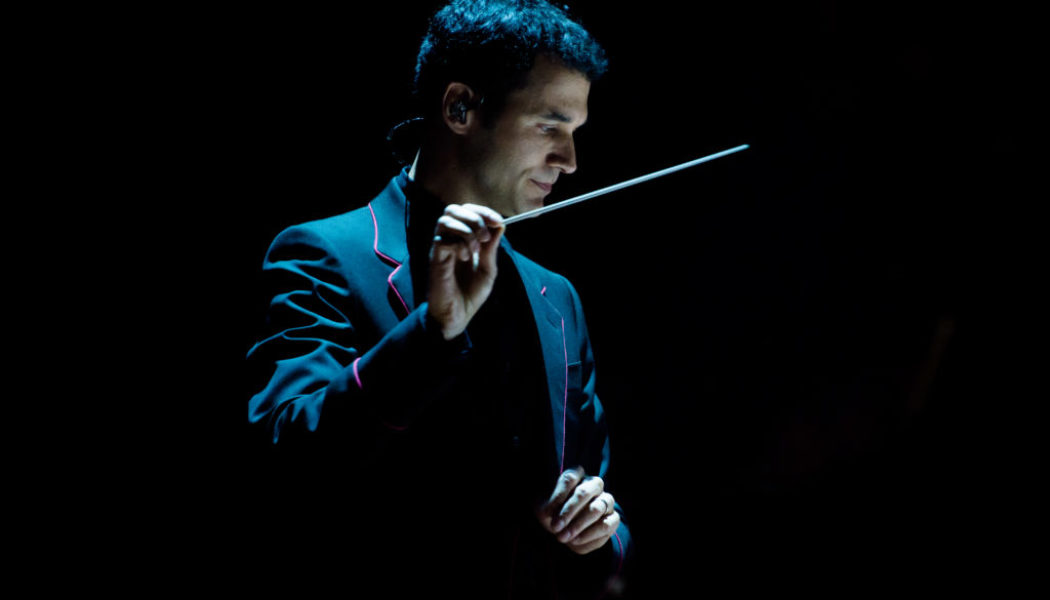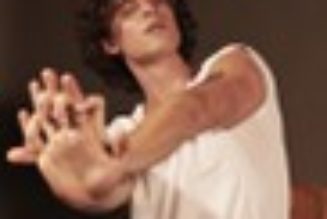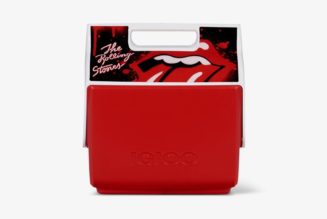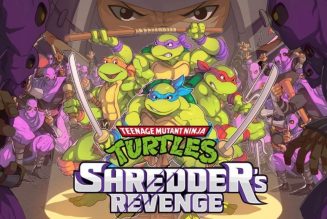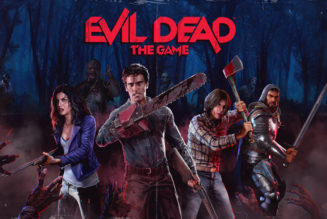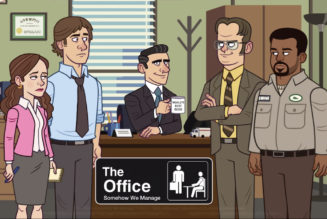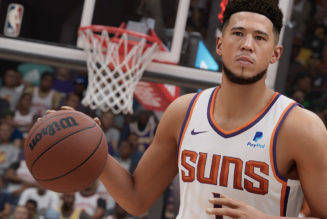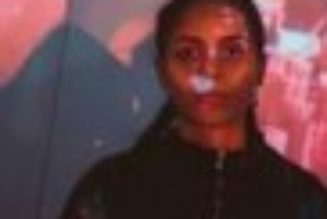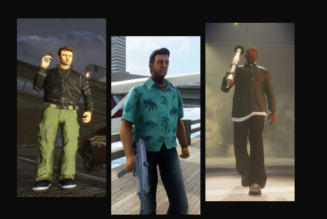
When Amazon decided they wanted to get into developing video games, a lot of the gaming industry wasn’t sure exactly what to make of it. Sure, they could buy out studios, build their own platform, and basically sink unlimited resources into just about any aspect of game creation they want, but would endless pockets be enough to create a game that people actually want to play?
Well, we’ll find out next week when Amazon Games launches its first flagship MMORPG (massively multiplayer online role-playing game, like World of Warcraft), New World. Players will venture to the continent of Aeturnum Island, where they’ll be responsible for battling, crafting, and exploring their way through a world filled with all kinds of creatures, both real and imaginary.
So who does one of the biggest companies on the planet hire to score the title that they have the vast majority of their gaming launch riding on? None other than Ramin Djawadi (Westworld, Iron Man, Clash of the Titans) and Brandon Campbell. The duo teamed up for the last two Gears of War games together, and they’ve also worked together on some movies and TV shows you may have heard of before — like Game of Thrones, Eternals, A Wrinkle in Time, and The Strain.
SPIN caught up with the pair amid the buildup to the September 28 release to chat about musically building a new world for New World.
SPIN: Like many MMORPGs, New World is a huge game both as far as content and scale. How do you go about creating a score for something so huge?
Brandon Campbell: I mean, we really tried to have a diverse score because the game itself is so diverse — with so many different types of areas and geographical locations. Hopefully we created some memorable melodies, but we focused on using lots of different instrumentation and different musical colors.
Ramin Djawadi: I think we were also able to vary things dynamically. So there’s a wide range of instrumentation, but they’re also very dynamic. There are some dark pieces, some very light pieces, some quiet, some big action. Like Brandon said, it’s such a vast world that we basically had to match that musically.
And I know the two of you work together sometimes, but you’re also both very accomplished composers on your own these days. What was it like to collaborate again on New World?
Campbell: For me personally, I love working with Ramin. He mentored me when I was younger — he even still mentors me — and it’s really nice to be able to compose with and bounce ideas off of him. He bounces ideas off of me as well, so I might start something and Ramin will come in and help me finish it, and vice versa. It’s just the whole collaborative process of it really is more exciting in a lot of ways and can be more innovative than working by yourself.
Djawadi: As a composer, you sit in a room by yourself a lot, and it can be quite a lonely job. So by doing this together, you can inspire each other. Like Brandon said, you bounce ideas off of each other, and it’s fun to do it together like that. We can play tracks to each other and create things together, and that makes it fun.
Seeing as New World could be a game that people sink hundreds or thousands of hours into, how does that affect both the variety and how much music you create to make sure people don’t get bored with it?
Djawadi: Well, we wrote a lot of music for it, and the music is very different. So hopefully, there doesn’t feel like there’s ever any repetition even when people spend a lot of hours on it, because there’s a lot of songs. Another thing is that some of it is just to set the mood. The music isn’t constantly in your face, and we tried to break it up a little bit to just create an atmosphere for certain areas.
Campbell: There are a lot of variances in both the sound and the different arrangements of the melodies, themes, and ideas. You might hear the main theme played very small, then you might hear it played with the full orchestra, then you might hear it played on a solo instrument, and then you might hear it in the choir. There are themes that come back, but they get cycled through a bunch of different arrangements and variations.
Obviously you’ve both scored plenty of games before, but seeing as you’ve also worked on some of the biggest TV and film projects in recent years, are there any major differences or challenges when coming back to video games?
Djawadi: The big challenge was that in the very beginning, we had no visuals. We had some artwork and some stills, but we had to come up with the sound while the game was being developed. It wasn’t like a movie or television show where you actually have some visuals to write against, so it was definitely a challenge to just start completely from scratch. But talking to the great audio team really helped us immensely with inspiration — just by them describing to us what they needed emotionally from the different areas.
Campbell: I loved the concept art. I think it’s amazing just seeing some of the drawings and renderings the artists had done. But getting this thing off the ground without visuals was [the biggest challenge]. The biggest difference was also that there was just no point when we ended up with a complete video. We might have a developer doing a walkthrough of certain parts of the game or certain areas, but it’s more for inspiration than something to actually score. You’re like, “I’m going to write a three-minute lighthearted adventure piece that takes place in this zone!” or “I’m going to write a scary tension piece that takes place at night in the forest!” but you don’t have to worry about finding the cuts or sync points in the actual video.
Since New World is a brand new IP, what was it like to create the world musically from the ground up as opposed to stepping into a sequel or something based on an existing universe?
Campbell: We really had a lot of freedom, because it’s such a big and diverse world, and Amazon really pushed us into making it different. They really want to differentiate the areas and characters and creatures you’ll encounter with different sounds. We literally felt like we were creating a world map in the fact that we could use any instrument every time we saw a different entity. We used everything from traditional orchestras to ethnic instruments to banjos and fiddles to singing, and eventually I lost track. I personally ran out of ideas for new instruments to try that we hadn’t done before. Like there’s a harmonica track for a scene that takes place in a swamp, and we manipulated the audio to where it literally felt like creating a world. It was such a bigger, broader scope than you normally have in a two-hour feature film or something like that.
Djawadi: [Campbell] would go traveling and he would see this new drum that he found, so he’d be like “Oh, this could be great for the game!” and he’d just pick it up and ship it back. We would always look for different instruments, and there was definitely a lot of experimenting. That was obviously such a fun part of everything — especially since we were doing it together and just trying to be creative and figure things out.
